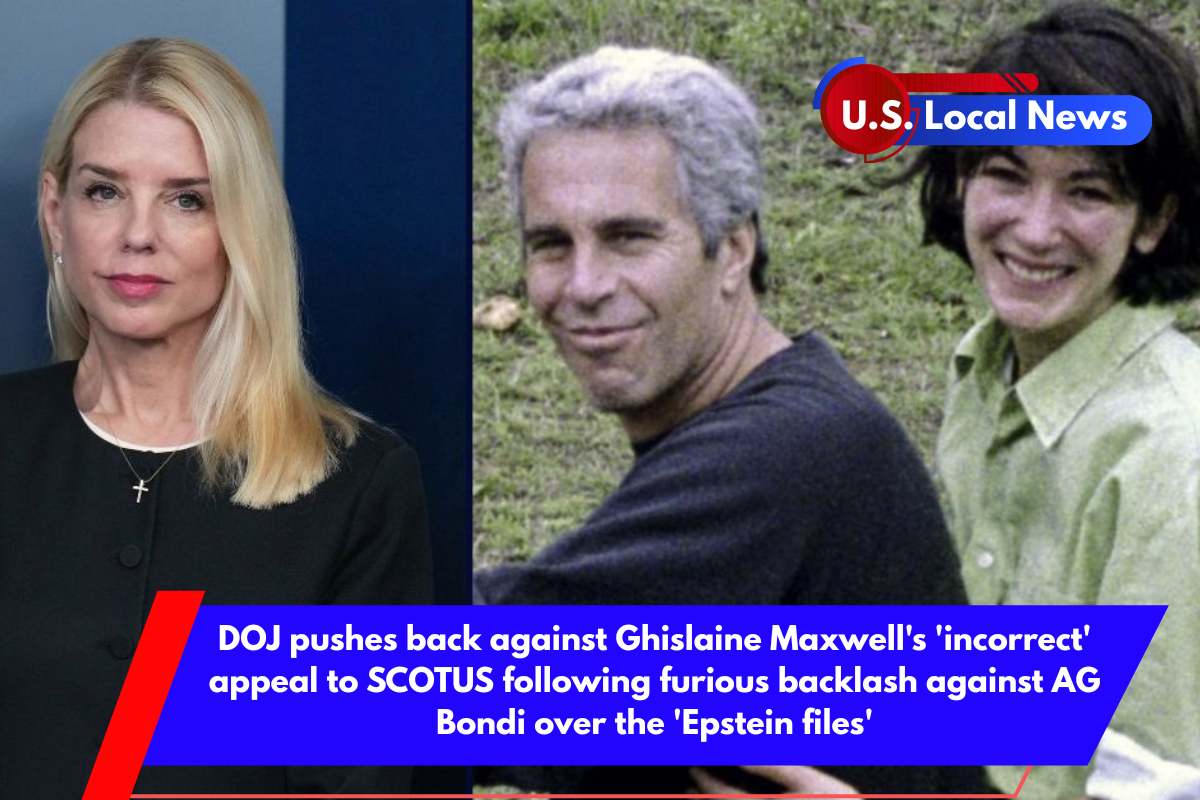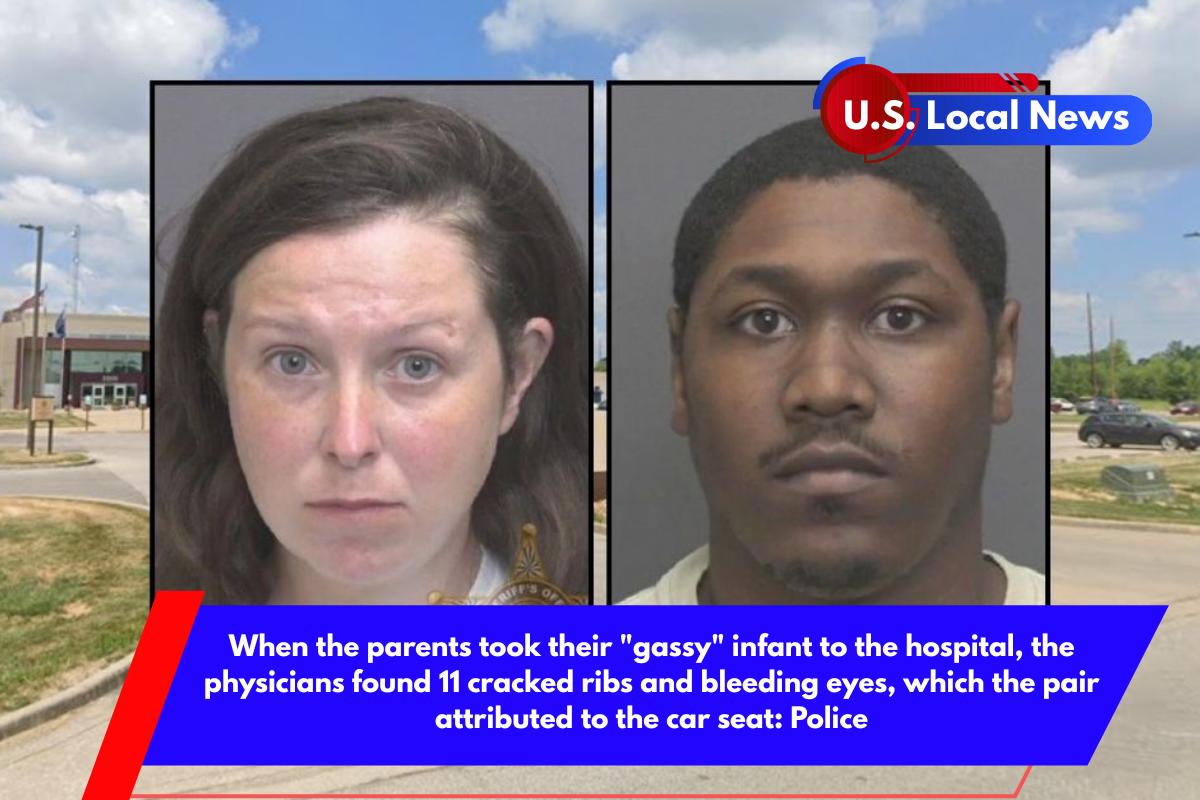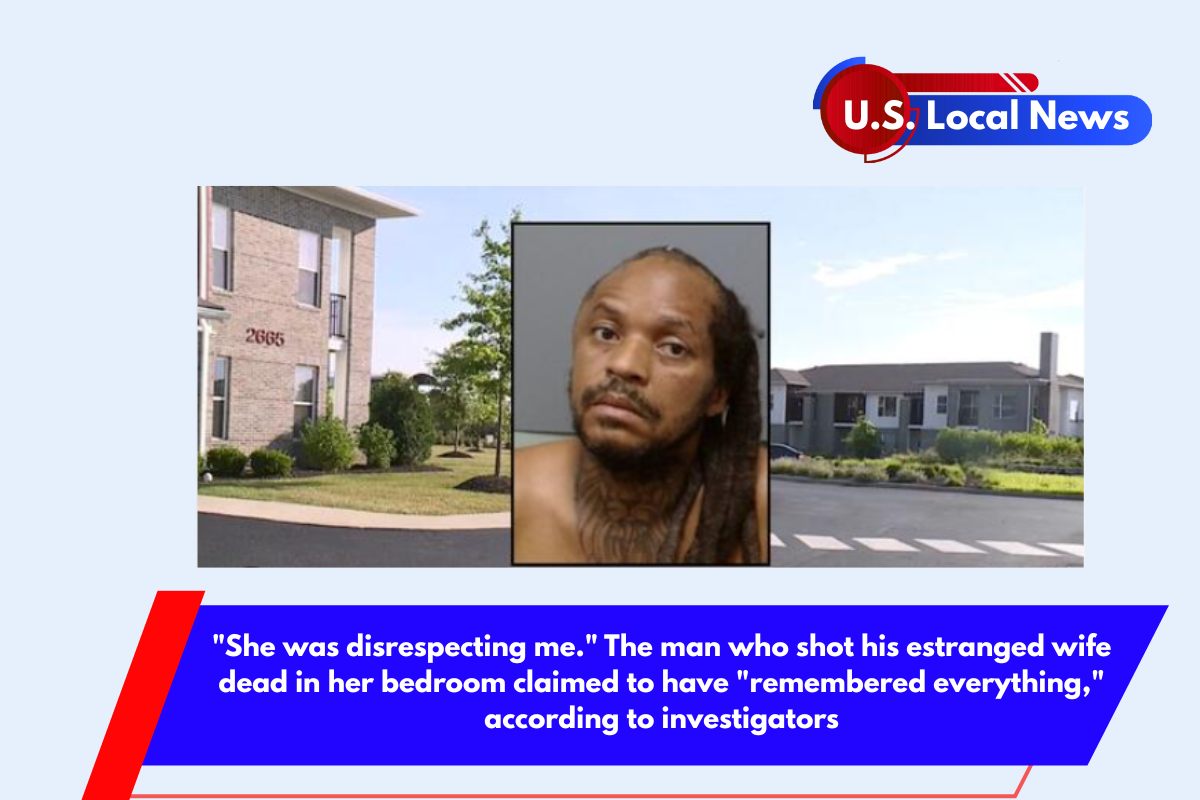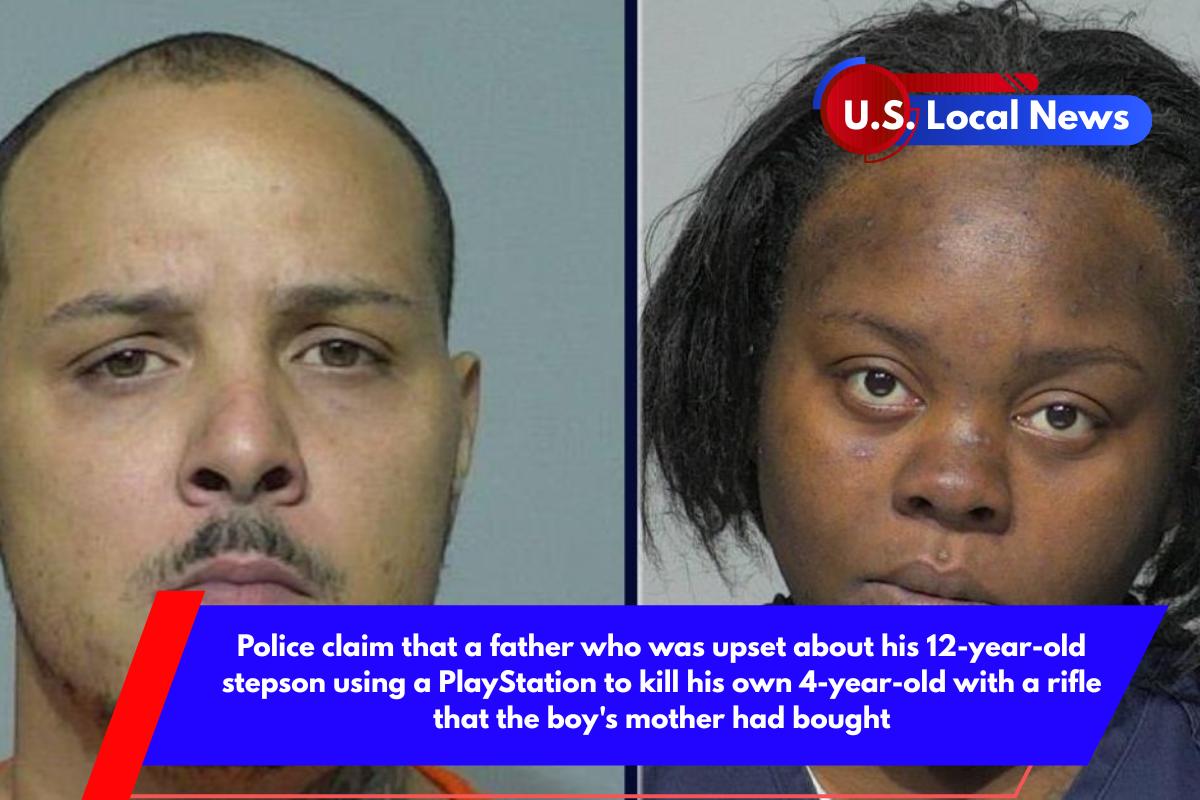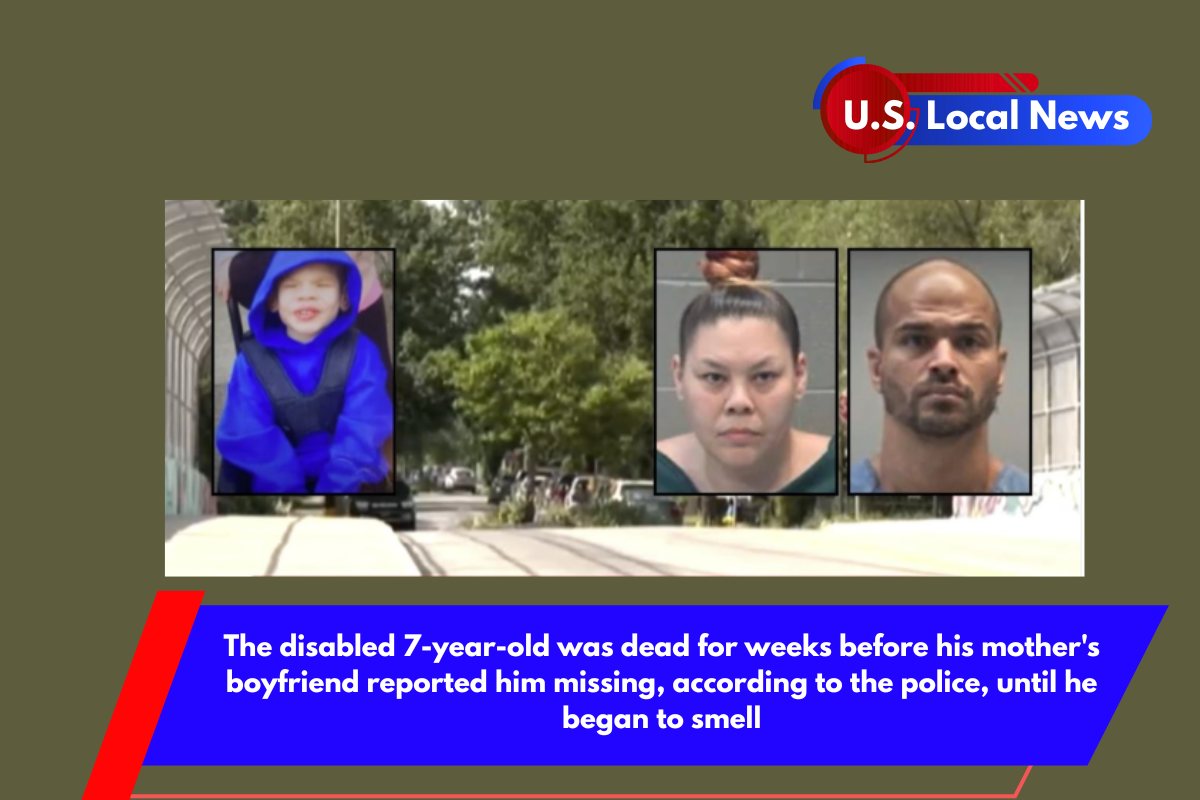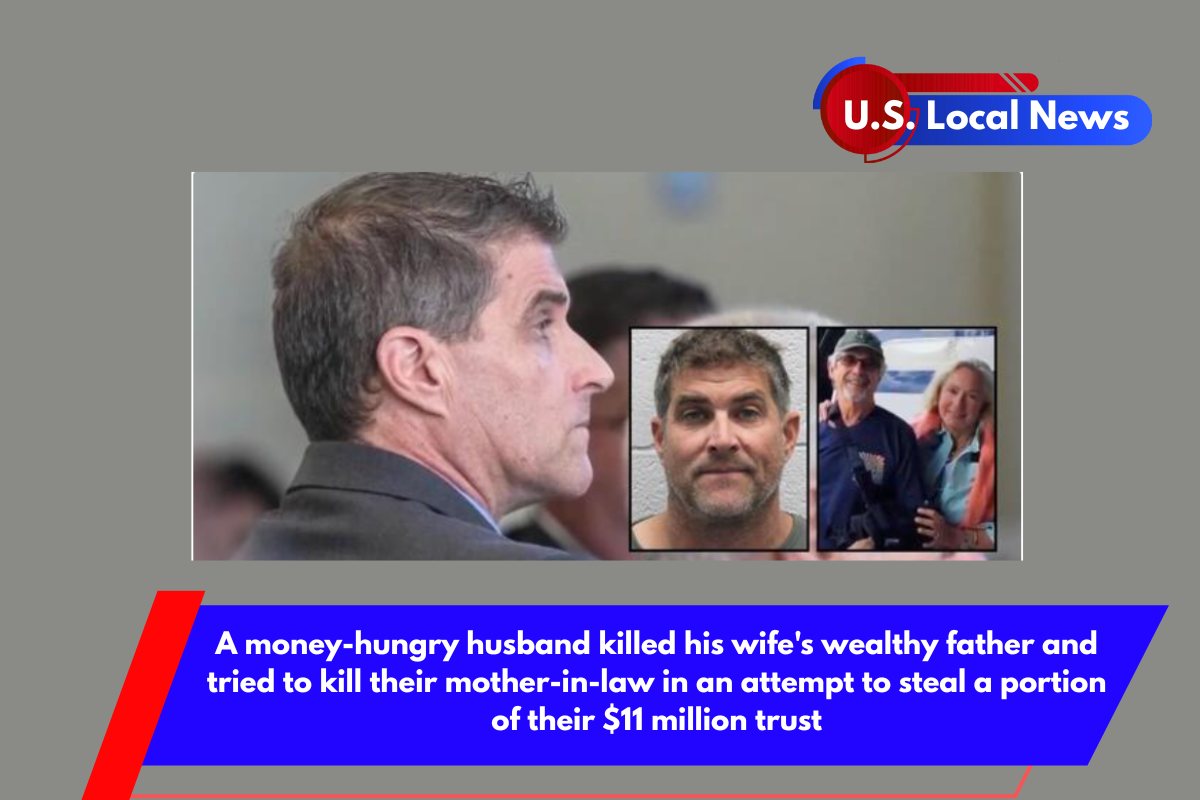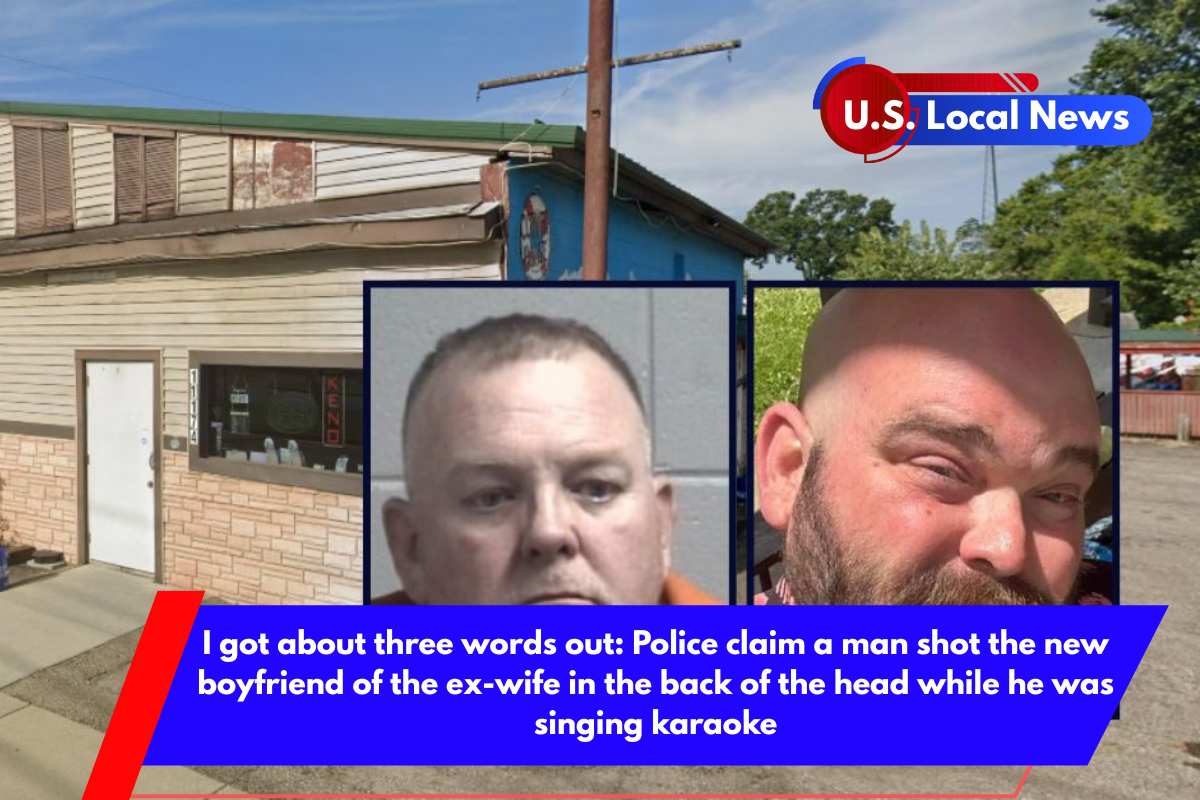The U.S. Department of Justice, led by Attorney General Pam Bondi, is in the awkward position of having to respond Monday to convicted Jeffrey Epstein accomplice Ghislaine Maxwell’s appeal to the Supreme Court after infuriating President Donald Trump’s base last week with a ham-fisted statement that there is no actual “client list” linking people to the deceased accused sex trafficker.
While the DOJ declined to provide any catnip to those who, for years, fueled conspiracy theories about the possible blackmail of powerful figures and Epstein’s 2019 suicide in jail before he could face trial, the government did oppose Maxwell’s bid to overturn her convictions by July 14.
In May and June, the DOJ separately requested and received extensions for its response to Maxwell’s petition for writ of certiorari. These extensions postponed action in the case until Monday.
According to the DOJ, Maxwell has no legal basis to claim that the government violated the terms of the infamous Epstein non-prosecution agreement (NPA), so her 20-year sentence for enticing young girls and grooming them for sex trafficking and abuse at the hands of her former boyfriend should stand.
“Petitioner renews her claim that Epstein’s nonprosecution agreement with the United States Attorney for the Southern District of Florida barred her prosecution by the United States Attorney for the Southern District of New York.”
“That contention is incorrect, and petitioner has not demonstrated that it would succeed in any court of appeals,” the DOJ stated. “This case would also be an unsuitable vehicle for addressing the matters raised in the petition for a writ of certiorari.”
The DOJ stated that the 2007 NPA was only reached with the U.S. Attorney’s Office for the Southern District of Florida, and that it did not preclude U.S. attorneys in other jurisdictions from prosecuting cases.
“Even if the Florida USAO had attempted to bind all other USAOs in the NPA, it lacked the authority to do so.
According to DOJ policy at the time the Epstein NPA was entered, a USAO could only bind other districts in an NPA with the approval of those districts or the Criminal Division,” the DOJ added. “The USAO here did not do this. And petitioner cannot compensate for the lack of actual authority by using estoppel or apparent authority against the government.”
“That is particularly true where she is, at most, an incidental third-party beneficiary of the agreement,” the government concluded of Maxwell.
The actual NPA, the DOJ emphasized, was cut while the “government was not even aware of petitioner [Maxwell]’s role in Epstein’s scheme at that time”—and, unlike others in Epstein’s orbit, Maxwell’s name did not appear in the agreement.
Maxwell’s petition, on the other hand, argued that she “never should have been charged” and that a split among federal appellate courts needed to be resolved. Her attorney, David Oscar Markus, described the case as a “ideal vehicle” for achieving that goal.
“Under Santobello and common principles of contract interpretation, does a promise on behalf of the ‘United States’ or the ‘Government’ that is made by a United States Attorney in one district bind federal prosecutors in other districts?” In April, Maxwell filed a petition citing a 1971 Supreme Court case that reversed the government’s plea agreement and sentencing recommendation in a gambling case.
Maxwell, a 63-year-old former British socialite with ties to the Clintons and Prince Andrew, is currently incarcerated in Tallahassee’s federal prison. She has asked the justices to rule that, like in the Santobello case, the government made a promise it should have kept, and that her conviction should be overturned as a result.
“This case is particularly deserving of review because it clearly presents the issue at hand, which is ripe for the Court’s consideration. In this case, the government made a written promise that Epstein’s co-conspirators would not be prosecuted by the United States, and Maxwell was prosecuted as Epstein’s co-conspirator,” according to Maxwell’s brief.
“The only question is whether the government’s promise that the ‘United States’ would not prosecute her was enforceable against the U.S. Attorney’s office in New York, or only against the Southern District of Florida.”
Last September, the 2nd United States Circuit Court of Appeals ruled that the NPA did not protect Maxwell in New York, where she was tried, convicted, and sentenced.
Epstein’s much-discussed so-called sweetheart plea deal in 2007 included an NPA for “potential co-conspirators” in exchange for admitting to state charges of soliciting prostitution from a minor and serving time in a local jail rather than facing a major federal case.
In the early stages of her criminal case, Maxwell unsuccessfully argued for NPA immunity. More than a year later, in June 2022, United States District Judge Alison Nathan sentenced Maxwell to prison.
However, Maxwell reiterated the NPA argument in her March 2023 appeal, claiming that the government caved to “public outrage over an unpopular non-prosecution agreement” and was punishing her instead of the “person responsible for the crimes,” Epstein, who committed suicide in jail while awaiting trial in 2019.
“In its zeal to pin the blame for its own incompetence and for Epstein’s crimes on Maxwell, the Government breached its promise not to prosecute Maxwell, charged her with time-barred offenses, resurrected and recast decades-old allegations for conduct previously ascribed to Epstein and other named assistants, and joined forces with complainants’ civil attorneys, whose interests were financial, to develop new allegations that would support charges against Maxwell,” Maxwel
The 2nd Circuit, on the other hand, found “no errors in the District Court’s conduct of this complex case” — whether by denying Maxwell a new trial following a juror’s “erroneous” answer to a question about whether he was a sexual abuse victim, rejecting her statute of limitations arguments, or deciding without an evidentiary hearing that the more than a decade old NPA was not binding.
The appellate panel ruled that it was “well established” in the 2nd Circuit that a plea agreement “binds only the office of the United States Attorney for the district in which the plea is entered unless it affirmatively appears that the agreement contemplates a broader restriction,” and that “nothing” in the Epstein deal “affirmatively shows that the NPA was intended to bind multiple districts[.]”
Alexander Acosta, who served as Secretary of Labor during Trump’s first term, resigned in 2019 following revelations about the Epstein plea deal. Acosta was the U.S. Attorney for the Southern District of Florida who approved the NPA, whose existence was illegally concealed from Epstein’s victims, a federal judge ruled in 2019.
Days before resigning, Acosta was famously asked if Epstein was a “intelligence asset,” a claim he reportedly made in response to Trump transition team questions ahead of his confirmation hearings.
“So, there has been reporting to that effect. And, let me say, there has been a lot of reporting on the effects of this case — not just now, but over the years,” Acosta stated.
“Once again, I would be hesitant to accept this reporting as fact. Our office brought this case, and it was based on the facts. And I look at that reporting and others — I can not talk about it directly because of our guidelines — but I can tell you that a lot of it is going down rabbit holes.”
After failing to deliver the “Epstein files” goods that she promised would arrive in February, Bondi was pressed last week about “lingering” Epstein “mysteries,” such as whether his original federal case was scuttled because he was a “intelligence asset.”
“I have no knowledge of that. “We can get back to you on that,” Bondi replied.
Before Bondi responded, Trump interjected, questioning the public’s — and, by extension, his own supporters’ — interest in Epstein, with whom he partied at Mar-a-Lago in the 1990s.
“Are you still discussing Jeffrey Epstein?” “This guy has been talked about for years,” he explained. “Is anyone still talking about this guy? Is this creepy? “That is unbelievable.”
In a 2002 interview, Trump described Epstein as a “terrific guy” he had known for 15 years, citing Epstein’s interest in “beautiful women” on the “younger side.”
“He is a lot of fun to be with,” Trump told New York Magazine. “It is even been said that he likes beautiful women as much as I do, and many of them are young. No doubt, Jeffrey enjoys his social life.
By 2019, while defending Acosta, Trump had changed his mind about Epstein, claiming he “knew him like everybody in Palm Beach knew him.”
“I had a falling out with him a long time ago,” he said. “I do not think I have spoken with him in 15 years. “I was not a fan.”
In 2020, Trump wished Maxwell well after her arrest, thereby fueling the “Epstein did not kill himself” conspiracy theory and meme.
“Her friend or boyfriend was either killed or committed suicide in jail,” Trump stated about Maxwell and Epstein. “She is currently in jail. Yes, I wish her well. I wish you well. I would wish many people well. Good luck. Let them prove who was guilty.”
Months before winning the 2024 presidential election, Trump spoke with podcaster Lex Fridman on X. When asked about a “Epstein list” of clients, which his own DOJ now claims does not exist, Trump said it “probably will be” made public under his watch — or that he would “certainly take a look at it.”
Trump stated that, unlike “a lot of people,” he had “fortunately” never visited Jeffrey Epstein’s island, nicknamed “Pedophile Island.”
“I am not involved, I never went to his island,” he informed us.
Months earlier, Trump told Fox News, “Yeah, yeah, I would.” When asked if he would declassify the “Epstein files,” he replied, “I guess I would.” As a result, many of his most ardent supporters believed that a reckoning was imminent.
Trump did, however, add a caveat to Epstein’s disclosures.
“I think that less so because you do not know — you do not want to affect people’s lives if it is phony stuff in there, because there is a lot of phony stuff with that whole world,” Mr. Trump said.
The interviews show that, at the very least, Trump was aware that many people, including his own supporters, were very interested in providing the public with more information about the Epstein case.
However, in the aftermath of the MAGA backlash over Bondi’s handling of the “Epstein files,” Trump over the weekend on Truth Social blamed Democrats for his administration’s review and directly questioned why his “‘boys’ and, in some cases, ‘gals'” were calling for his AG’s removal.
“For years, Epstein has been mentioned repeatedly. Why are we publicizing files written by Obama, Crooked Hillary, Comey, Brennan, and the Biden Administration’s Losers and Criminals, who duped the world with the Russia, Russia, Russia Hoax, 51 ‘Intelligence’ Agents, ‘THE LAPTOP FROM HELL,’ and other schemes? They created the Epstein Files, just as they created the FAKE Hillary Clinton/Christopher Steele dossier that they used against me, and now my so-called ‘friends’ are playing right into their hands,” he wrote.
